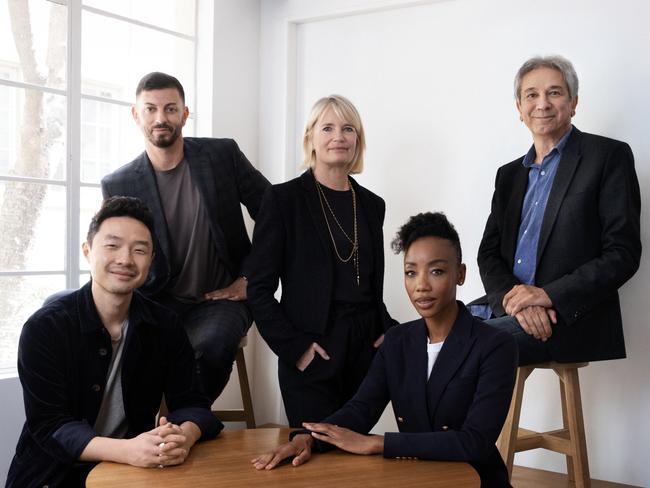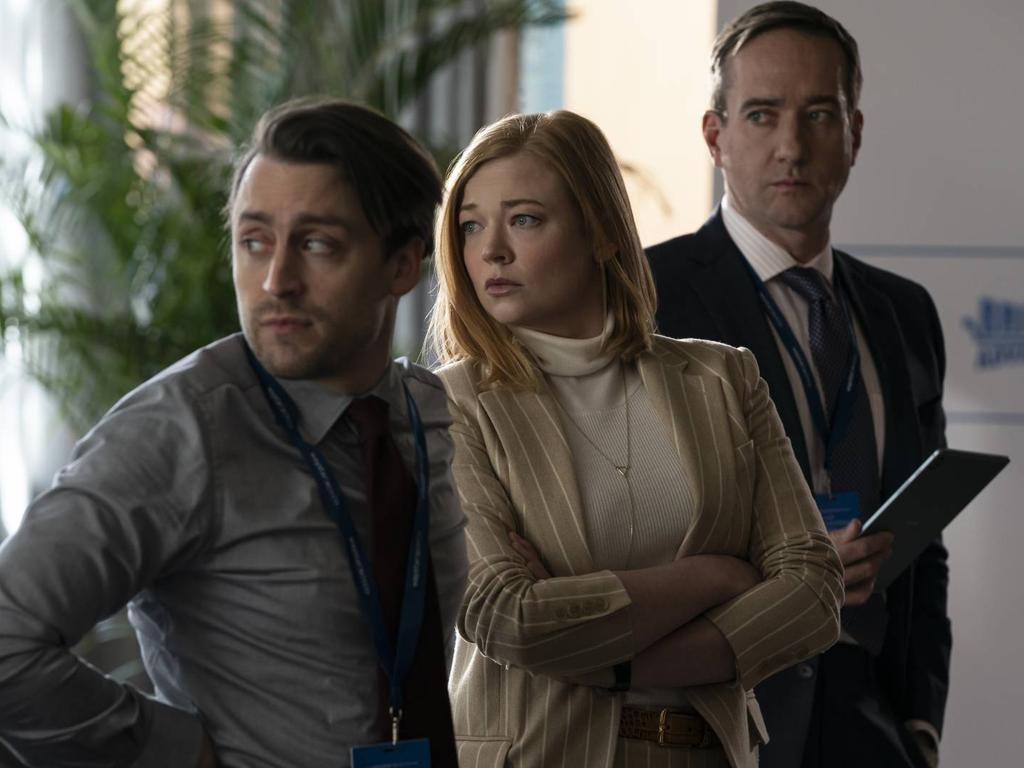Animal Logic’s Zareh Nalbandian joins Australians in Film new board
Animal Logic’s Zareh Nalbandian joins Australians in Film new board as it eyes global expansion

From Nicole Kidman to Russell Crowe, Cate Blanchett to Sarah Snook, Australians have been punching above their weight in Hollywood for decades. Oscars, Emmys, Golden Globes – rarely a year goes by when we are not mentioned in nominations. A big part of this success is the antipodean creative community set up in Los Angeles and at the heart of this is a body called Australians in Film.
“The mission really is to open the world up for Australians in film and television,” explains the new AiF board chair, Emma Cooper. “We literally open doors for actors, writers, storytellers and directors. I think people know us mostly for our Heath Ledger Scholarship, because it has been so successful on the acting side. But we also have the Untapped program for screenwriters and the Global Producers Exchange for producers, as well as a co-working space where we have a writer’s lab.”
The organisation started in 2001 with casual film screenings for friends. Two decades later, it’s expanding into a global platform for our television and film industry, with new board members, an additional advisory board, and plans for offices in Sydney, London and beyond. The next chapter involves some of the biggest names in the business, who are also Australian, with Zareh Nalbandian, founder of animation studio Animal Logic Entertainment (recently sold to Netflix for reportedly more than $700 million) becoming a board member, and producer Bruna Papandrea, who made Gone Girl and Big Little Lies with Nicole Kidman and Reese Witherspoon, a member of the new six-person advisory board.
Also joining the AiF to help foster emerging talent and provide a link between Australia and Hollywood is Emile Sherman, Oscar-winning producer of The King’s Speech; Toby Borg, head of global client strategy at talent agency CAA; indigenous writer and actor Nakkiah Lui; actress Charmaine Bingwa; and Jiao Chen, vice-president of creative development at Sony Pictures Entertainment.
“I got to know Australians in Film as an organisation when we established Animal Logic Entertainment in LA and I soon realised how important they were to Australian filmmakers and creatives in this huge city, which can be challenging to say the least,” Nalbandian says. “Bringing the community together to feel like we have a network, we have colleagues, supporters and peers we can work with and actually share our ambitions and aspirations.”
Nalbandian, whose production company made Happy Feet and Peter Rabbit and is currently working with Ron Howard on an animated movie for Netflix, says the AiF also runs practical training programs, including mentorships and internships, and connects creative people at the start of their career with experienced Hollywood players. The AiF – with help from Screen NSW and other state government film bodies – has also set up a co-working space called Charlie’s on a film lot in West Hollywood, where incoming Australian writers, directors and producers can work, collaborate and socialise.
“I met one of our young writers at Charlie’s just today and she was just so excited to be here,” says Cooper from the US. “She had never been to LA and was here for the writing programs, and was so grateful to be here and have the opportunity. That is the big aim for the new board, to try to be able to impact more lives, especially those who are undiscovered and have been historically excluded.”
Peter Ritchie, executive director at AiF, says the organisation has come a long way since it started back in 2001 with movie screenings and barbecues for Australians in LA. There are now a number of professional development programs, and of course the most famous one – the Heath Ledger Scholarship, which was set up in 2008 to honour the actor’s work but also his extraordinary generosity to fellow Australians hoping to break into the industry. Ledger’s house was known as a place where actors could crash and he was always introducing newcomers to his colleagues.
“It has really become a launching pad for Australian actors,” says Ritchie. “It is one of the most prestigious and coveted scholarships, and gives you a legitimate platform and introduction to Hollywood.” Some of the recipients have included Bella Heathcote, Ryan Corr and Cody Fern.
Another recipient was Perth actress Charmaine Bingwa. The daughter of Zimbabwean immigrants, Bingwa left Australia because of the lack of roles available for black actors. She moved to LA in 2018 knowing nobody, got a residency at Charlie’s and won the Heath Ledger Scholarship. She then got an agent and a manager, and has landed a role on The Good Fight, played opposite Will Smith in the Apple TV movie Emancipation, and just finished filming in Africa for the Showtime series King Shaka.
“I will forever be grateful to AiF, because as well as providing me with unparalleled career advancement opportunities, it provided me with a place I could call home overseas,” she tells WISH. “It provided me with friends, collaborators, mentors, countless resources, a community and support. I am honoured to be contributing to AiF as it continues to be the reason countless members make a life and career overseas.”
Ritchie says the Heath Ledger Scholarship has become so well known in Hollywood for being a talent spotter that they receive more than 800 applications a year, and often all the finalists get signed up to agents, not just the winner. “This city and this industry probably takes five to 10 years to crack but our programs parachute people in two to three years,” he says. “It’s pretty extraordinary.”
The AiF is now looking at opening an office in Sydney, London and other global cities over the next few years, with the idea of becoming a creative embassy for the Australian screen industry around the world. The body also wants to get Australian storytelling front and centre – with writers, directors, producers – and assist with collaborations so that more films and movies are made in Australia. “We want the next Squid Games coming out of Australia; we want that global hit,” he says.
Nalbandian agrees, saying the Australian film and television industry can’t just be one for hire to the big international production houses. We need to tell our own stories, and this can be done through the development of talent and creatives and the screenplays they write or the film pitches they make.
“What I am passionate about is getting our stories told in a way that the rest of the world engages and we influence the rest of the world,” he says. “Creative industries are so critical to our place in the world, the way we are seen as a society and as a culture. It is a real reflection of who we are and who we are developing into as a nation. That’s why we also need to double down on inclusiveness and diversity, which is also a very big part of the AiFs commitment to our creative industries. I am really optimistic about our future and what AiF can deliver in Australia and the rest of the world.”



